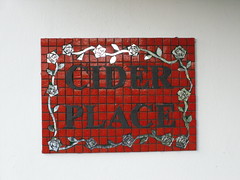
I’m imagining this to be easier to write given the lack of Internet connectivity. After three days of travel, we’ve arrived a Gonubie, Eastern Cape, South Africa.
While the others showered or settled in, I put on my running gear and ran down to the water.
Three and a half miles along the Indian Ocean at sunset with a full moon over the horizon turned out to be exactly what I needed.
I’m unsure what to expect from this first week of workshops. Though the e-Personnel here in Eastern Cape will have their own laptops, what I’ve read about the education system here has been bleak. I am, as always, waiting to be proven wrong.
One of the sessions I’m charged with leading this week is backward design. If your memory’s some sort of steel trap, you’ll recall I was Mr. Backward Design for last year’s projects in both South Africa and Kenya.
In Cape Town, we were met with resistance. Not resistance to the ideas or to me in particular, but resistance to what it resembled.
In preparation for this year, I did my research and found this report on the advent and predicted failure of Objectives-Based Education (OBE) in South Africa.
OBE is close to Backward Design (not the same, but close enough).
Handed down in the wake of Apartheid as a way to rejuvenate the South African education system as well as create an influx of creative, innovative thinking, OBE went along with attempts to reform the blatantly racist curriculum of Apartheid.
The study lists 10 reasons OBE will fail in South Africa. The study’s author is no dunce.
After the fact, this helps to put last year’s teachers in context and helps me to gear up for this year.
The piece that hung in my head – if you squint you can still see it hanging there – was the idea that OBE would also mean the advent of a slew of new jargon and terminology accompanying the new way of thinking. Add that to the existing structure of the South African classrooms and the paper argues teachers will overload and either reject OBE or implement it incorrectly, shaping what they’re already doing to fit what they understand OBE to be.
This last part stands at the crux of some of my concerns when working with teachers in a workshop setting.
I’m learning each year to push my students to think more deeply vs. trying to get shallow understandings of everything.
Professional development, though, is so scarce, it’s nearly impossible to resist the urge to throw everything into one week.
Looking at our schedule, I think we’ve a good start.
Tomorrow’s first face-to-face full-team meeting will help to flesh some of this out in my mind.
Sunday’s meeting with Charles (our liaison with the Eastern Cape Ministry of Education) and his colleagues will also bring a better understanding of what the participants here need and want.
So long as we’re working to those needs and wants, we’re on the right path.
'so long as we're working to those needs and wants, we're on the right path.' you're exactly right; let the community define its own needs and journey with them, and you're gonna' do great.